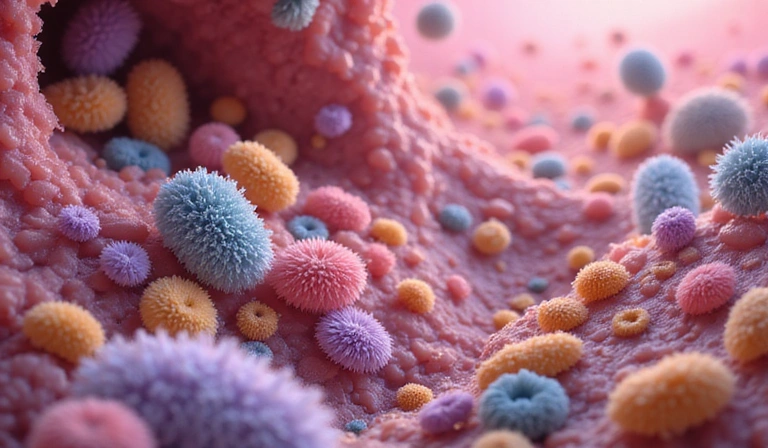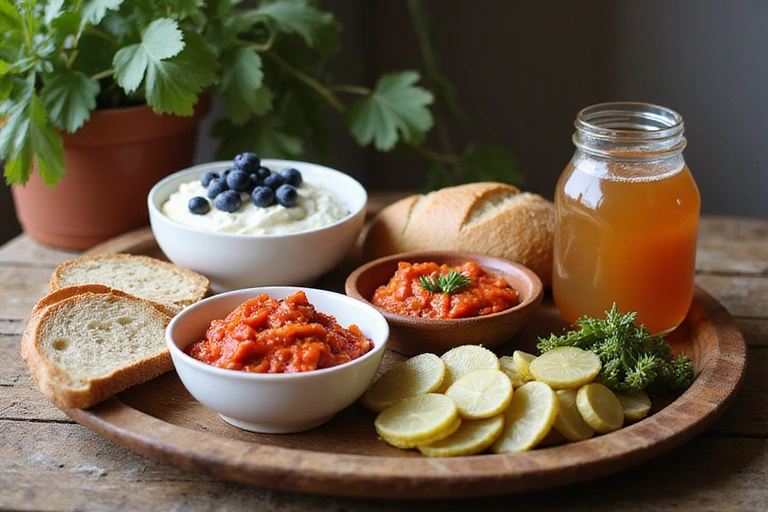In the bustling rhythm of modern life, maintaining optimal health can often feel like a complex puzzle. Among the many pieces, gut health has emerged as a cornerstone, influencing everything from our immune system to our mood. At the heart of this intricate ecosystem are probiotics – beneficial microorganisms that play a pivotal role in keeping our digestive system in balance. But what exactly are probiotics, and how do they wield such significant power?

Understanding Probiotics: The Tiny Heroes Within
Probiotics are live microorganisms, primarily bacteria and yeasts, that, when administered in adequate amounts, confer a health benefit on the host. Think of your gut as a vast garden, and probiotics are the helpful cultivators, ensuring that the right plants (beneficial bacteria) thrive while keeping weeds (harmful bacteria) at bay. This delicate balance, known as the gut microbiome, is crucial for numerous bodily functions.
The Role of the Gut Microbiome
- Digestion and Nutrient Absorption: Probiotics assist in breaking down food, particularly complex carbohydrates that the body cannot digest on its own, and facilitate the absorption of essential vitamins and minerals.
- Immune System Support: A significant portion of our immune system resides in the gut. Probiotics help train immune cells, strengthening the body's defenses against pathogens.
- Vitamin Synthesis: Certain strains of probiotics can synthesize vital vitamins, such as B vitamins and vitamin K, contributing directly to overall health.
- Protection Against Pathogens: By competing for nutrients and adhesion sites, and by producing antimicrobial substances, probiotics create an environment hostile to harmful bacteria.
- Mental Well-being: The gut-brain axis is a bidirectional communication network. Probiotics have been linked to the production of neurotransmitters like serotonin, influencing mood and cognitive function.
Sources of Probiotics: Beyond Supplements
While probiotic supplements are widely available, many traditional foods are natural powerhouses of these beneficial microbes. Incorporating these into your diet can be a delicious way to support your gut health.

Fermented Foods Rich in Probiotics:
- Yogurt: One of the most well-known sources, choose varieties with "live and active cultures" and minimal added sugar.
- Kefir: A fermented milk drink, similar to yogurt but with a thinner consistency and a wider range of probiotic strains.
- Sauerkraut: Fermented cabbage, rich in lactic acid bacteria. Look for unpasteurized versions to ensure live cultures.
- Kimchi: A spicy Korean side dish made from fermented vegetables, offering a complex flavor and diverse probiotics.
- Kombucha: A fermented tea drink, known for its effervescence and unique sweet-tart taste.
- Tempeh: A fermented soybean product from Indonesia, offering a firm texture and nutty flavor, along with probiotics.
- Miso: A traditional Japanese seasoning made from fermented soybeans, often used in soups and dressings.
"The gut is not just a digestive organ; it's a second brain, a vital immune organ, and a key regulator of our overall health. Nourishing it with probiotics is an investment in our holistic well-being."Dr. Anna Wijaya, Nutritional Scientist
Choosing the Right Probiotic Supplement
If dietary sources aren't sufficient or if you have specific health concerns, a probiotic supplement might be beneficial. However, the market is flooded with options, making selection challenging. Consider these factors:
- Strain Specificity: Different probiotic strains offer different benefits. Research which strains are best suited for your particular needs (e.g., Lactobacillus rhamnosus GG for diarrhea, Bifidobacterium lactis for constipation).
- CFUs (Colony Forming Units): This indicates the number of live organisms per dose. A higher CFU count doesn't always mean better, but generally, look for supplements with billions of CFUs.
- Diversity: A supplement with multiple strains can offer broader benefits.
- Delivery System: Some probiotics are designed with special coatings to survive stomach acid and reach the intestines.
- Storage: Some probiotics require refrigeration, while others are shelf-stable. Always check the label.
Integrating Probiotics into Your Daily Routine
Making probiotics a consistent part of your lifestyle involves more than just consuming fermented foods or supplements. It's about cultivating a gut-friendly environment.
Prebiotics are just as important as probiotics. Prebiotics are non-digestible food ingredients that selectively stimulate the growth and activity of beneficial bacteria in the colon. They are essentially food for your probiotics. Excellent sources include garlic, onions, leeks, asparagus, bananas, and whole grains.

Beyond Diet: Lifestyle Factors for Gut Health
- Stress Management: Chronic stress can negatively impact the gut microbiome. Practices like meditation, yoga, or spending time in nature can help.
- Adequate Sleep: Sleep deprivation can disrupt gut balance. Aim for 7-9 hours of quality sleep per night.
- Regular Exercise: Physical activity can promote a diverse and healthy gut microbiome.
- Hydration: Drinking sufficient water is essential for digestive health and overall bodily functions.
- Limiting Processed Foods: High sugar and unhealthy fat content in processed foods can feed harmful bacteria.
Conclusion: A Journey Towards Holistic Health
The science of probiotics and gut health is continually evolving, revealing new layers of complexity and connection to our overall well-being. By understanding the vital role these tiny heroes play and by making conscious choices in our diet and lifestyle, we can foster a thriving internal ecosystem. This journey towards a healthier gut is not just about digestion; it's about unlocking a deeper sense of vitality, resilience, and holistic health. Embrace the power of probiotics and nurture your inner garden for a healthier, happier you.